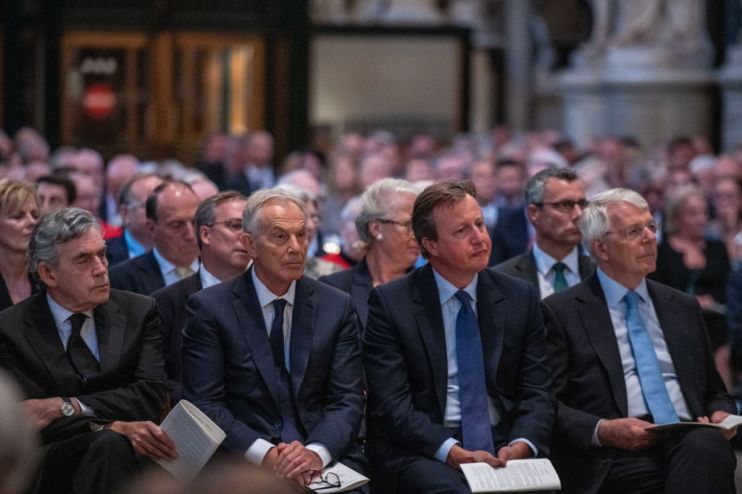All living Prime Ministers out of politics set to give evidence at lobbying inquiry

Every living former Prime Minister that is not still involved in Westminster politics will be asked to give evidence at a major parliamentary inquiry into lobbying and anti-corruption.
The probe is set to be announced tomorrow and it will be ran by Westminster’s Public Administration and Constitutional Affairs committee (PACAC).
David Cameron, Gordon Brown, Tony Blair and Sir John Major will all be asked to attend a public session of the inquiry.
William Wragg, chairman of PACAC, told the Sunday Telegraph that his committee’s probe would be akin to the work of corruption unit AC12 in the popular police procedural Line of Duty.
“PACAC may not be the AC12 of Whitehall, nor do we envisage encountering anything quite as exciting as in a television drama,” he said.
“However, it is at least a sense of duty that motivates our work, just as duty and service motivates the vast majority of those in public life. As ever, we must not let the questionable judgement of a few tarnish all.”
The PACAC inquiry will come alongside probes launched by Boris Johnson and Westminster’s Treasury Select Committee last week.
Cameron’s lobbying of government ministers on behalf of failed Greensill Capital will be a large part of the inquiries.
The former Prime Minister contacted Rishi Sunak and Matt Hancock on behalf of the supply chain finance firm in a bid to win government contracts and secure a bailout for the company.
A series of other revelations about the relationship between the government and the private sector have come to light since the Greensill Capital scandal erupted.
It was revealed last week that former senior civil servant Bill Crothers took up a job with Greensill Capital in 2015 while still working in Whitehall.
It emerged on Friday that a firm belonging to health secretary Matt Hancock’s family members had won NHS contracts.
The revelations have sparked calls for an overhaul of lobbying legislation.
Read more: Greensill: ‘No boundaries’ between civil servants and private sector, says cronyism watchdog
When asked about rules on lobbying by Sky News, environment Secretary George Eustice said: “Fundamentally, I think the systems we have in place with ministers declaring interests with the ministerial code and the focus on that and how ministers conduct themselves in office is actually a pretty good one.
“But that is not to say you couldn’t make tweaks or changes, and also there will be a time and a place for that after these reviews have concluded.”